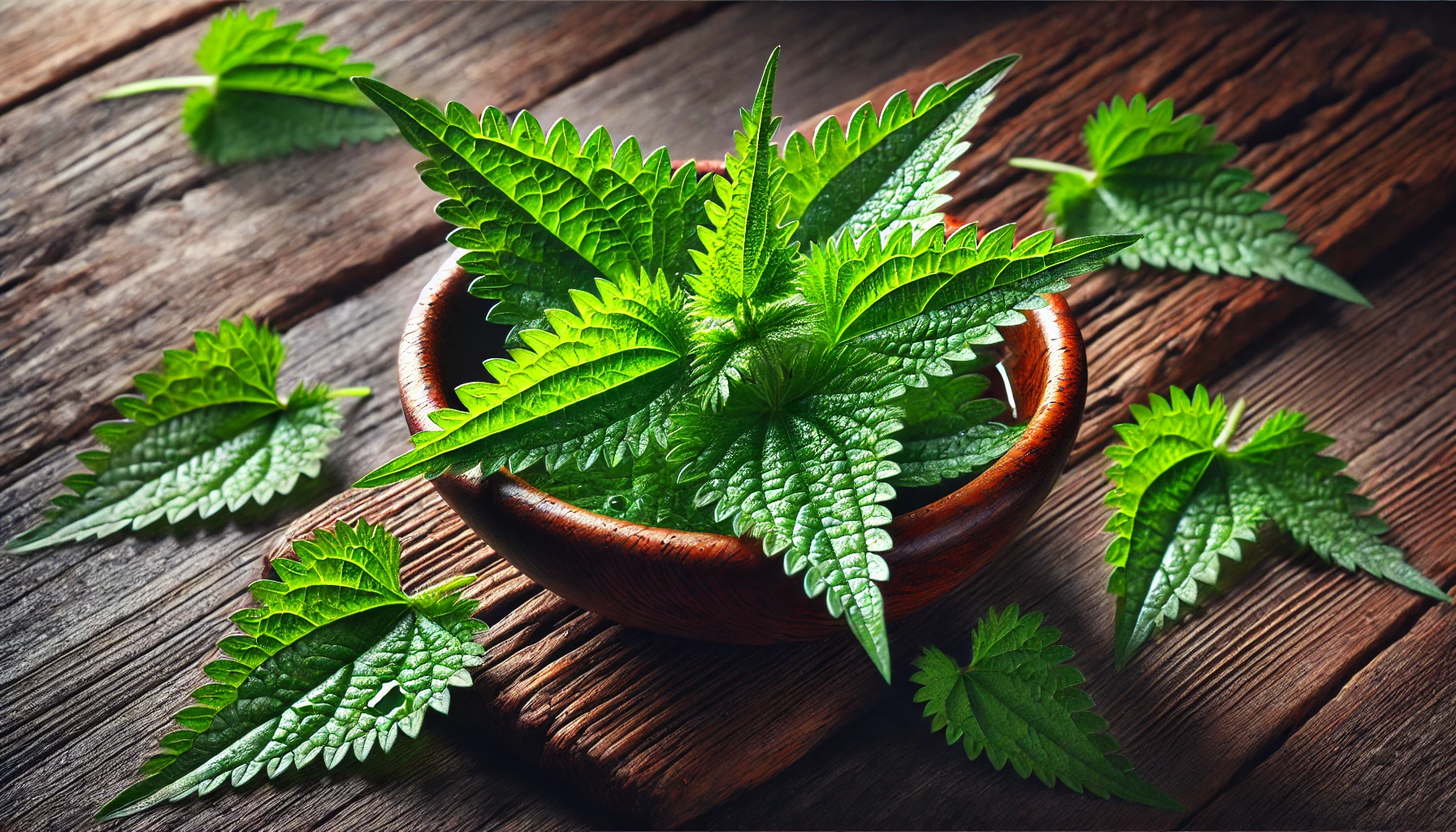This post was written with Consensus AI Academic Search Engine. Nettle leaf, derived from the stinging nettle plant (Urtica dioica L.), has been used for centuries in various cultures for its nutritional and medicinal properties. This article explores the health benefits, nutritional facts, and preparation methods of nettle leaf, highlighting its potential as a valuable addition to a healthy diet.
Health Benefits
Rich in Essential Nutrients
Nettle leaves are a powerhouse of essential nutrients. They are particularly high in vitamins A and C, calcium, iron, and protein. Studies have shown that processed nettle can supply 90%-100% of the daily recommended intake of vitamin A and is a good source of dietary calcium, iron, and protein, making it an excellent choice for vegetarian, diabetic, or specialized diets1.
Antioxidant and Anti-inflammatory Properties
Nettle leaves contain a variety of bioactive compounds, including flavonoids, phenolic acids, and carotenoids, which contribute to their strong antioxidant and anti-inflammatory properties. These compounds help in scavenging free radicals and reducing inflammation, which can be beneficial in preventing chronic diseases2 3 7.
Potential Antidiabetic Effects
Research has indicated that nettle leaves possess antidiabetic properties. The extracts and compounds from nettles have shown in vitro antidiabetic activity comparable to known standards, suggesting their potential in managing blood sugar levels3.
Enhancing Nutritional Quality of Foods
Nettle leaves can be used to enrich various food products, enhancing their nutritional profile. For instance, nettle-enriched bread has been found to have higher levels of fibers, minerals, and antioxidant compounds compared to plain bread9. Similarly, nettle leaf flour can improve the nutritional content of complementary foods, making them more suitable for infant nutrition10.
Nutrition Facts
Macronutrients and Micronutrients
Nettle leaves are low in calories but rich in essential nutrients. They provide a good amount of protein, vitamins (A, C, E), and minerals (calcium, iron, magnesium, potassium). The nutritional composition can vary depending on the processing method, with freeze-dried nettle leaves retaining more nutrients compared to oven-dried ones4 5.
Bioactive Compounds
Nettle leaves are rich in bioactive compounds such as flavonoids, phenolic acids, carotenoids, and chlorophylls. These compounds contribute to the plant’s antioxidant capacity and other health benefits. For example, the yellow chlorophyll catabolite, phylloxanthobilin, found in nettle tea, has significant antioxidative and anti-inflammatory activities8.
How to Prepare Nettle Leaf
Fresh and Processed Forms
Nettle leaves can be consumed fresh or processed. Fresh leaves can be used in salads, smoothies, or as a cooked vegetable. Processing methods such as blanching, cooking, or drying can affect the nutritional content. Blanching and cooking can reduce the levels of certain vitamins and minerals but still retain a significant amount of nutrients1 3.
Drying Methods
Drying nettle leaves is a common method to preserve them for later use. Freeze-drying is preferred over oven-drying as it retains more nutrients and bioactive compounds. Dried nettle leaves can be ground into powder and used as a functional additive in various food products, such as bakery items and ready-to-cook meals4 5.
Nettle-infused Products
Nettle leaves can also be infused into other products to enhance their nutritional value. For example, nettle-infused olive oil has been shown to have higher antioxidant and antibacterial properties compared to regular olive oil, making it a novel culinary and health-promoting ingredient6.
Conclusion
Nettle leaf is a highly nutritious and versatile plant that offers numerous health benefits. Its rich content of essential nutrients, antioxidants, and bioactive compounds makes it a valuable addition to a healthy diet. Whether consumed fresh, dried, or infused into other products, nettle leaf can significantly enhance the nutritional quality of various foods and contribute to overall health and well-being.
